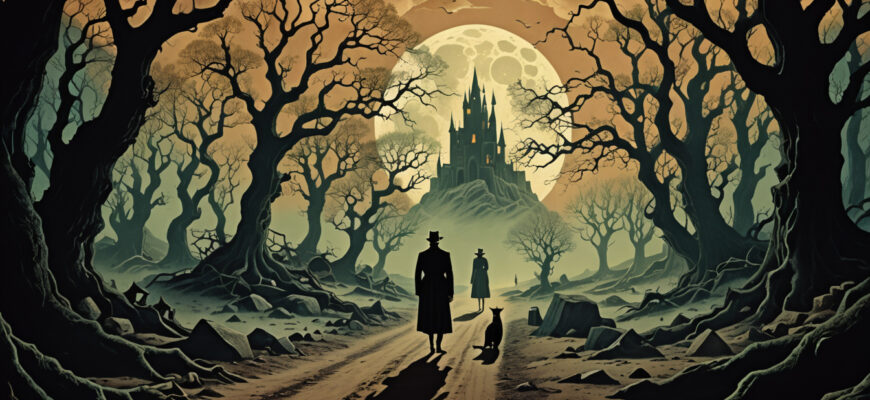Dreams about strangers often arrive with a puzzling mix of emotions—curiosity tinged with unease, fascination shadowed by fear. Who are these unknown faces, and why do they knock on the doors of our subconscious? Far from random actors, strangers in dreams invite a deeper look at the secret chambers of the self, places that stay hidden in the daylight. These dreams don’t just show us unfamiliar people; they reveal parts of ourselves that might feel untapped, dismissed, or even misunderstood. Facing a stranger in your dream can feel like slipping into a mystery that holds keys to hidden desires, fears, and potentials yet to unfold.
- Understanding The Mystery: Why We Dream Of Strangers
- Symbolism Of Strangers In Dreams: Unpacking Their Meaning
- Emotional Responses To Stranger Dreams
- Psychological Schools on Stranger Dreams: Diverse Perspectives
- Spiritual Traditions and Stranger Encounters in Dreams
- Astrology’s Role in Shaping Stranger Dreams
Understanding The Mystery: Why We Dream Of Strangers
There’s often an intriguing paradox at play when strangers appear in dreams. They feel foreign yet strangely familiar, like reflections of something beneath the surface rather than just random figures. When a stranger walks through your dreamscape, it might hint at aspects of your inner world that aren’t fully visible to your waking mind.
These strangers can act as symbolic stand-ins for unexplored qualities within you—latent talents you haven’t dared to try, emotions you tuck away, or facets of identity waiting patiently to be recognized. In those fleeting moments of dream interaction, you’re connecting with shadow parts of yourself, pieces that Carl Jung described as parts we reject or deny but are critical for growth and healing. What makes these dreams compelling (or unsettling) is the mix of emotional waves they stir—curiosity to learn more, fear of the unfamiliar, allure from something enticing yet unknown, or even a sense of disconnection that asks you to pause and reflect.
Symbolism Of Strangers In Dreams: Unpacking Their Meaning
Dream strangers don’t just represent “otherness.” They embody untapped potential—the start of new paths, fresh ideas, or relationships on the horizon. When a stranger appears, it can feel like the universe whispering, “There’s more waiting beyond your current boundaries.”
But these figures can also carry the weight of unresolved inner conflicts. The stranger may personify your shadow self, the parts of the psyche that hold feelings or traits you’ve pushed aside or denied—those unintegrated pieces that beg for attention, acceptance, and healing.
Sometimes, they carry karmic echoes or lessons from past experiences, showing up as markers of patterns that didn’t quite resolve or spiritual ties that ask for reflection and release. Their presence often feels charged, hinting at unfinished business that the dream space gently places before you.
| Symbolic Role | Meaning In Dreams |
|---|---|
| Untapped Potential | Invitation to explore new possibilities and growth avenues |
| Shadow Aspects | Reflections of denied emotions and traits needing integration |
| Karmic Lessons | Hints at unresolved patterns or spiritual debts from past lifetimes |
| Psychological Archetypes | Projections of inner figures, like Jungian shadow or anima/animus |
Emotional Responses To Stranger Dreams
Emotions color each encounter with a dream stranger, offering clues that open paths to personal insights. These feelings often fall somewhere along a spectrum:
- Connection: A sense of warmth, familiarity, or even attraction suggests readiness to welcome new relationships or parts of the self.
- Threat: Anxiety, fear, or vulnerability points to boundaries being tested, old wounds poked, or social fears surfaced.
- Neutrality: Indifference or calmness might reveal unfamiliar ground unexplored or feelings held at bay.
When the same stranger returns in multiple dreams or moments feel charged beyond usual, it’s rarely by chance. Recurrence often signals deeper messages your mind needs to work through—places where desires, fears, and boundaries need examining or redefining.
Stranger interactions invite gentle reflection on where comfort zones end and growth begins. They ask: What do you truly desire? What scares you? What parts of yourself are ready to be seen and embraced?
Psychological Schools on Stranger Dreams: Diverse Perspectives
Ever woken up from a dream about a stranger and wondered what that unknown face meant? Stranger dreams often trigger curiosity or even a bit of anxiety because they tap into parts of ourselves that feel unfamiliar or hidden. One way to make sense of these mysterious figures is by looking through the lens of different psychological schools, each offering unique takes on what strangers in dreams reveal about the psyche.
Freud’s approach zeroes in on wish-fulfillment and repressed desires. According to his view, strangers might represent disguised yearnings or impulses that society or our own upbringing has pushed underground. That enigmatic figure could be a symbol for taboo feelings or unresolved conflicts—maybe parts of childhood or secret longings you haven’t allowed yourself to acknowledge. Take a dream about a stranger who evokes strong attraction or fear; Freud might say it’s your unconscious mind wearing those hidden desires in a mask.
Carl Jung shifts the focus from mere repression to integration. Strangers often embody the shadow—the darker, unrecognized side of the self—as well as the anima or animus, which represent our internal feminine or masculine energies. So that unknown person could be a call to embrace traits we usually reject, or an invitation to balance inner polarities. For example, dreaming of a mysterious man when you’re a woman might point to your animus, pushing for harmony with that part of your psyche.
Trauma-informed psychology reads stranger dreams as echoes of past wounds. When painful memories or unprocessed trauma bubble up, they can manifest as strange, sometimes threatening figures at night. Those images aren’t just random; they act as reminders that the psychic wounds still need care, safety, and healing. Imagine a dream where a stranger invades your space—it might reflect experiences of boundary violations or vulnerability that your mind is trying to work through quietly.
From a queer and feminist perspective, stranger dreams become radical spaces where norms unravel and identities unfold freely. These readings celebrate the fluidity of gender, attraction, and selfhood, trusting the stranger in the dream as a symbol for non-binary or shifting aspects of identity. Strangers can disrupt heteronormative scripts, challenge societal expectations, or model the “otherness” that queerness often inhabits. A dream featuring a gender-ambiguous stranger could be a way your subconscious is exploring and affirming complex, fluid identities.
These psychological viewpoints remind us that strangers in dreams aren’t just random guests. They hold keys to hidden desires, parts of the self in shadow, past traumas waiting for attention, and bold declarations of identity beyond conventions. When you next meet a stranger in your sleep, you might consider what piece of yourself is walking through that door.
Spiritual Traditions and Stranger Encounters in Dreams
Across spiritual traditions, strangers in dreams often carry messages from beyond the ordinary world. They appear as guides, messengers, or even teachers, inviting dreamers to venture deeper into transformation and soul work.
Indigenous and shamanic teachings frequently describe strangers as spirit allies. These figures might not be “strangers” at all but ancestors, animal totems, or power spirits showing up as unknown faces to lead the dreamer through realms of healing or insight. Imagine a dream where a stranger offers a cryptic clue or leads you down a winding path; this can be the spirit world coaching you on a personal quest or warning of challenges ahead.
Eastern philosophies, particularly those rooted in Buddhist and Hindu thought, see strangers as reflections of samskaras—imprints left by past actions and karmic tendencies. Dreaming of a stranger might bring forward unfinished karmic ties or unresolved issues from previous lifetimes. These dreams function as invitations to recognize patterns and release stored pain or attachment. For instance, meeting a stranger who feels familiar but elusive could be a karmic knot asking to be untied through introspection and mindfulness.
Mystical symbolism often paints strangers as gateways to transformation. The stranger steps onto a threshold, the liminal space where old versions fall away and new parts of the soul emerge. In alchemical and mystical writings, encounters with unknown figures signal a readiness to do inner work that reshapes one’s core identity. Within the dream’s unfolding narrative, that stranger might embody initiation—pushing you to explore shadow, face fears, or embrace change.
So, in spiritual traditions worldwide, strangers in dreams are rarely random visitors. They’re messengers sent to stir awakening, offer guidance, and coax the dreamer toward the deep work of becoming whole. Whether your dream stranger feels like a guardian or a riddle, their presence marks a moment ripe with spiritual possibilities.
Astrology’s Role in Shaping Stranger Dreams
Astrology can add a cosmic frame to why stranger figures appear in dreams, especially when the sky is busy with signals that stir the inner world.
Mercury retrograde is famously linked with confusion, communication glitches, and unexpected encounters in waking life, and dreams are no exception. When Mercury slows down and seemingly moves backward, the unconscious mind might pull in strangers who represent unresolved conversations, forgotten feelings, or surprise guests from the past. Think of a dream encounter during Mercury retrograde where an unknown person brings up something you thought was long settled—this is your inner messenger pushing for a second look.
Lunar cycles also shape the emotional color of stranger dreams. The Full Moon’s bright-lit shadow can illuminate hidden fears, desires, or connections, making stranger encounters feel more intense or revealing. At New Moon, dreams about strangers often hold the vibe of fresh starts—new chapters or unknown opportunities quietly knitting themselves into your future. Both phases invite different types of reflection—a vivid reunion versus the soft hum of promise.
Other planetary movements can activate stranger archetypes in dreams, too. For example, a Venus transit might color strangers with themes of attraction or emotional longing, while a Pluto influence could bring in figures representing deep transformation or psychic power struggles. Mars transits could shake loose strangers who embody conflict, assertiveness, or courage. When you pay attention to the cosmic weather report, the strangers in your dreams start to feel like part of a larger, celestial conversation about who you are becoming.








